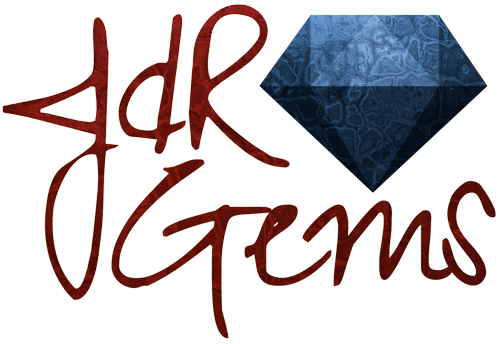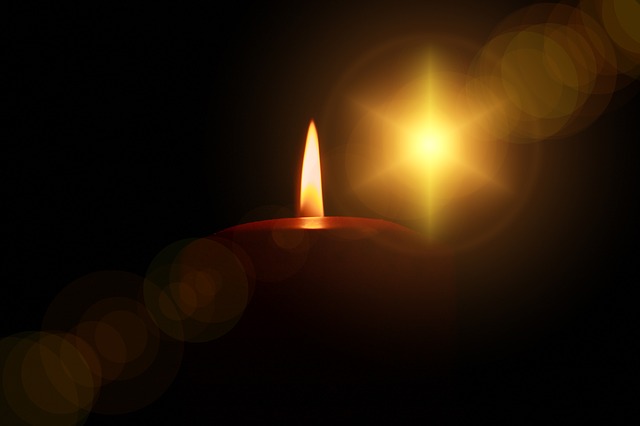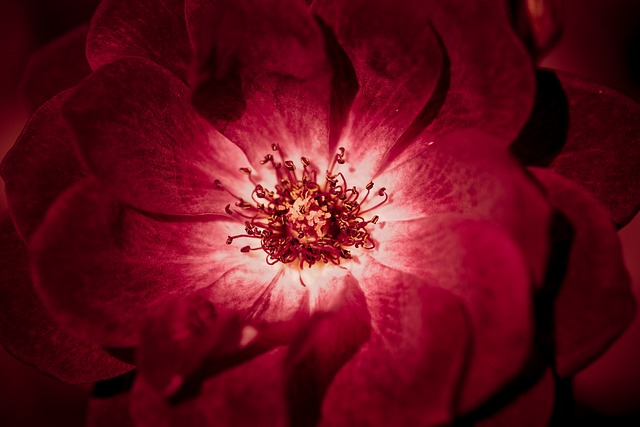Q: I would like to speak to you about my parents. When I was sixteen my father died, and for the last two years of his life I’d had no contact with him. My parents got divorced when I was fourteen and, because my mother gave me much more ground to stand on, I moved in with her. She had the strong feeling that my father would be a bad influence on me. My parents had a lot of fights before she eventually moved out and I took on her beliefs. He unexpectedly fell ill and died; we were out of the country, and the funeral was over before I knew he’d died. He just slipped out of my life. As I grew up I didn’t any longer believe what my mother believed about him and I would very much like to find him more deeply, to feel the bond that I have with him more clearly.
John: Every night that you lie down to go to sleep, lie down in the underlying connectivity that’s there with him. Lie down and go to sleep in the bond that’s there with him. In that way, each time you lie down to go to sleep, you’re getting to know him: not his self, not his person, not his personality – just him. And let him come everywhere into you.
Q: I don’t need any kind of memory, first?
John: That’s right. Lie down in your openness to him. Go to sleep in your openness to him. You don’t need to know him. You don’t need to get to know him. You don’t need any information. You’re just going to sleep in your openness to him. Everything that you’re open to is good.
Q: And the relationship to my mother? Deep down there is a lot of love toward her which sometimes flows, but on the surface there is some confusion, having grown up on her ground. So much has changed that now it seems that it’s for her to find my ground than for me stay on hers. That feels strange because she’s my mother. I don’t know how to be with her.
John: As you know that your ground is more than what she has, that makes you functionally more like her older brother or her father, where in your relationship with her you walk in a much greater perspective that just sees and understands. There’s nothing there for you to do.
Q: So when I have a clear sense that what’s she’s coming from is not the same as I come from, that’s okay and I can really relax into my ground?
John: Don’t even see it as your ground or her ground. What you see is deeper and more settled ground and, as you walk on that ground, through your walk it extends to her. The energy of it is offered to her.
Q: It’s really so clear that if I would not let things flow in this way then I would distract the relationship. There is just the deep where this love can really flow free. Then we can really be together; every time I meet her we can be open.
John: While you’re together, like seeing that her ground is not hers and your ground is not yours. View it without any kind of ownership, that there’s nothing there in you to make clear to her.
Q: And we’re both belonging to the same. Our relationship is liberated no matter how things act out on the surface. In the deep there is just this liberation in how we are.
John: Also open to anyone in your past whom you have cut off from.
Q: Do you mean friends, or anyone?
John: Even someone whom you might not have really known, but you would just see that person’s exterior or their behaviour and you would cut off and leave them energetically with a judgment on them. Anywhere where you’ve done that, let that one into you. Not their self or their person, but what is inwardly there: her or him.
Q: That’s lovely. I see that and I love that.
John: Anyone in your past who you’ve had a bitterness toward, which is different from someone who you would cut off – it’s someone who you’d be negatively engaging within your interior – anyone you’ve had bitterness toward, sweetly let her or him into you.
Q: I can do this with them or when I’m alone and they are not around?
John: They don’t need to be around. And then anyone in your past, not who you’ve cut off and not who you’ve been bitter toward, but those who you just didn’t like – anyone who you had dislike toward. As you open into all of this, you’ll see differently when you meet people. Where you’d normally have a reason to cut someone off or to be bitter toward someone, or just have a dislike, all of that passes away and what remains is your delicate seeing, your seeing without the influence of past judgment, past ways of reacting, past ways of seeing. What you are then as you meet people is goodness that sees. Your seeing is no longer determined by what someone else is like. That deeply opens your self and it frees your self to be like your being.
Q: I can see that so clearly. I can feel a deep relaxation in my whole body. It’s like being together with everyone; having this deep core relaxedness.
John: When you’re with your wife, have no private space within – a place you go to when you cut off a little bit, or when you’re just a little bit bitter, a space reserved for just you, your thoughts, and your feelings, a space where she’s not welcome, a private space that you’d go into and just have some dislike for her. Have no such private space. When you enter in the tiniest little ways such private space, you step into blindness. You’re projecting onto her something that is yours, something that hasn’t yet been cleaned out in your self, something that you haven’t dealt with in your self.
Q: I am aware of very subtle ways I do that with her. With friends I’m aware of bigger things, like being numb around them.
John: Just let it expose whatever it exposes. There’s nothing there to deal with, sort out or work with. The relaxation that allows you to feel it and see it is the same that frees. The beingness that you’re in exposes it by contrast. What is exposed doesn’t require your attention. The beingness that you’re in will just keep doing what it does. Your hand isn’t required in that.
Q: That’s so lovely. It’s really just deeper and deeper love beneath all that, which really liberates all of these holdings and makes this flow between me and everyone else real again.
John: Every little judgment, right down to the tiniest touches that are quiet within, the judgments that are as light as a blink: you see something in someone, you see something in yourself, and there’s a tiny blink of “oh, that’s such-and-such” or “that’s this-or-that”. The littlest of them, as they are in your self and you move with them, all represent an inner network that separates you, awareness, from what you really are as awareness. Every tiny little touch of it is blinding. You need absolutely none of it.
In being in that, that leaves you in your self completely naked and that nakedness is subject to everything. Everything touches it. You feel everything without judgment. Everything goes into you. Anything that has access into you, you do nothing with. The littlest judgment keeps it in you. Where there is no emotional tightening concerning anything, everything that touches you doesn’t stay on you, and everything that comes into you, regardless of what it feels like, doesn’t stay in you. You are not being corrupted by your own tightening. You’re being cleaned by your opening and your softening.
Q: That is so important for me to hear because I belong to …
John: To what can’t even relate to that … innocence.
Q: Thank you.










